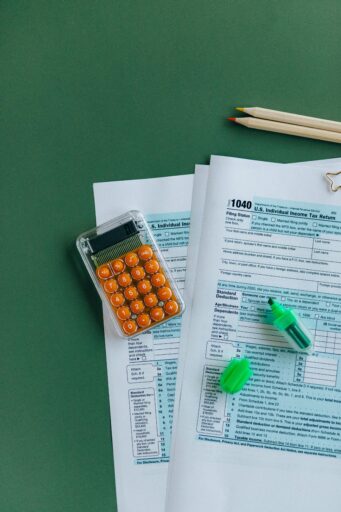Singapore’s tax system offers expats one of Asia’s most competitive environments, with no capital gains tax and low personal income tax rates.
Understanding expat taxes in Singapore is crucial, as residency status, employment income, and foreign-sourced earnings determine how much you actually owe.
This article covers:
- How long do you need to live in Singapore to become a tax resident?
- How do you determine tax residency in Singapore?
- What is the tax rate for foreign workers in Singapore?
- Is income from overseas taxable in Singapore?
My contact details are hello@adamfayed.com and WhatsApp +44-7393-450-837 if you have any questions.
The information in this article is for general guidance only. It does not constitute financial, legal, or tax advice, and is not a recommendation or solicitation to invest. Some facts may have changed since the time of writing.

What are the taxes for expats in Singapore?
Expat tax in Singapore refers to the taxes that foreign nationals working or residing in Singapore must pay on their income, property, and consumption.
Here are the main types of taxes expats may need to pay in Singapore:
- Income Tax – Charged on income earned in Singapore.
- Property Tax – Applied annually to property owners based on the property’s annual value and whether it is owner-occupied or rented out.
- Buyer’s Stamp Duty (BSD) – A tax paid on property purchases, calculated as a percentage of the property price or market value (whichever is higher).
- Additional Buyer’s Stamp Duty (ABSD) – Applies to foreigners and entities buying residential property.
- Goods and Services Tax (GST) – A consumption tax of 9% (from 2024) on most goods and services.
- Vehicle Taxes – Includes registration fees, import duties, and road taxes for those owning cars in Singapore.
Expat taxes in Singapore are determined by residency status, which affects how income is assessed and taxed.
What is the tax rate for expats in Singapore?
The Inland Revenue Authority of Singapore (IRAS) applies two main tax treatments:
- Tax residents (those meeting the 183-day rule or qualifying under specific conditions) are taxed progressively from 0% to 24%.
- Non-residents are taxed at a flat rate of 15% on employment income or the resident rate, whichever is higher. Other Singapore-sourced income, such as director’s fees or consultation fees, is taxed at 24%.
How much salary do I need to pay income tax in Singapore?
In Singapore, you are required to pay income tax if your annual income exceeds SGD 20,000. Below this threshold, your earned income is not taxable.
The Inland Revenue Authority of Singapore (IRAS) requires all residents and certain non-residents who earn income from Singapore sources, such as employment, director’s fees, or rent, to file a tax return annually.
Tax liability depends on your residency status, which is determined by the number of days you stay or work in Singapore within a calendar year.
What income is not taxed in Singapore?
Several types of income are not taxed in Singapore, reinforcing its appeal to expats and investors. These include:
- Overseas income not remitted to Singapore (such as foreign dividends or salary from work done abroad)
- Capital gains from investments or property sales
- Inheritance and gifts
- Dividends from Singapore resident companies (already taxed at the corporate level)
This makes Singapore an attractive base for globally mobile professionals and entrepreneurs.
Do I have to pay Singapore income tax if I work abroad?
No. If you are working abroad and your income is derived from overseas sources, you generally do not have to pay Singapore income tax, even if you are a Singapore tax resident.
However, if your income is paid by a Singapore employer for services performed overseas, it may still be considered taxable unless it qualifies as foreign-sourced income not remitted into Singapore.
Always confirm the specifics with IRAS or a tax advisor to ensure compliance.
Is Singapore 0% tax?
Singapore is not a 0% tax jurisdiction, but its tax rates are among the lowest in Asia.
It follows a progressive personal income tax system, with resident tax rates starting at 0% and capping at 24% for income above SGD 1,000,000 (from YA 2024 onward).
However, foreign-sourced income (such as overseas dividends, capital gains, or salary from work performed abroad) is generally exempt if not remitted to Singapore, which makes the country functionally close to 0% for certain offshore earnings.

What is the 60 day rule in Singapore?
The 60-day rule in Singapore provides a short-term exemption for non-residents who work in Singapore for less than 60 days in a calendar year.
Under this rule, income earned during those 60 days is exempt from taxation, provided the individual is not a company director, public entertainer, or exercising a profession in Singapore.
Once you exceed 60 days, normal non-resident tax rules apply.
What is the 183 day rule in Singapore?
The 183-day rule in Singapore determines tax residency status. You are considered a tax resident if you:
- Reside or work in Singapore for at least 183 days in a calendar year, or
- Stay continuously for at least 183 days across three consecutive years.
Tax residents enjoy progressive rates, personal reliefs, and tax exemptions, unlike non-residents who are taxed at flat rates.
Can an expat buy property in Singapore?
Yes, expats can purchase property in Singapore, but their options and the costs are significantly regulated.
- Non-residents and foreign persons can freely purchase condominium units, apartments, and certain strata-landed houses within approved condominium developments without prior government approval.
- However, for landed residential properties (terrace houses, semi-detached houses, bungalows, vacant land), expats must obtain approval under the Residential Property Act (RPA) via the Singapore Land Authority’s Land Dealings Approval Unit (LDAU).
- Tax / stamp-duty consequences: Foreigners buying any residential property are subject to an ABSD of 60% in 2025.
Is it worth buying a property in Singapore?
Yes, it can be worth buying property in Singapore for long-term expats or permanent residents due to strong market stability and no capital gains tax.
However, foreigners face high entry costs and restrictions, while they can buy condominiums freely, landed property requires government approval.
Taxes include BSD and an ABSD of 60% for foreigners, making property investment costly despite Singapore’s otherwise low property tax rates.
Conclusion
Singapore’s tax framework offers clarity, low rates, and strong incentives for global professionals and investors.
Expats who understand rules around residency, non-taxable income, and property ownership can benefit from one of the most efficient and transparent tax systems in the world.
FAQs
What is the most tax-friendly country for expats?
Countries like Singapore, the United Arab Emirates, and Monaco are considered among the most tax-friendly countries for expats, offering low or zero personal income tax and territorial taxation.
Is 3,000 SGD a good salary in Singapore?
A salary of 3,000 SGD per month is livable for a single expat but may feel tight given Singapore’s high cost of living, especially for housing and healthcare.
For a comfortable lifestyle, most expats earn between 6,000 and 10,000 SGD monthly.
What is considered wealthy in Singapore?
Individuals with net assets above SGD 2 million or earning over SGD 300,000 annually are often considered wealthy by local standards.
Singapore’s high concentration of millionaires also sets a higher benchmark compared to regional averages.
Can you own land in Singapore as a foreigner?
Foreigners cannot freely buy land in Singapore due to strict rules under the Residential Property Act.
They can purchase private condominiums without approval but need permission from the Land Dealings Approval Unit (LDAU) to buy most landed properties.
Where do most expats live in Singapore?
Most expats in Singapore live in areas like Orchard, Holland Village, Robertson Quay, and Bukit Timah, known for their international schools, amenities, and proximity to the city center.
Pained by financial indecision?

Adam is an internationally recognised author on financial matters with over 830million answer views on Quora, a widely sold book on Amazon, and a contributor on Forbes.



